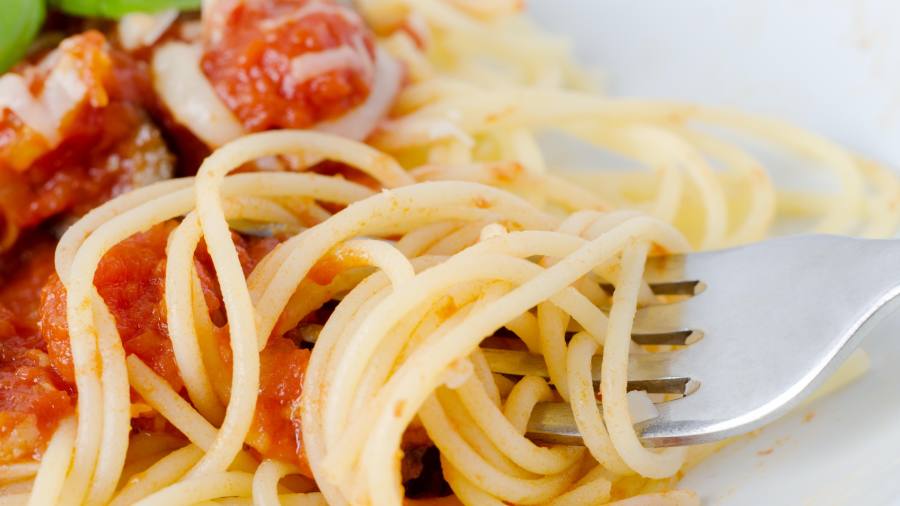
The price of a bowl of tomato paste has risen by 58% in the UK due to falling living standards
The price of a bowl of tomato paste, a favorite dish in British households, has risen by almost 60 per cent since last September due to a sharp rise in inflation, according to analysis by the Financial Times.
The price of pasta jumped 60 percent year-on-year last month, while butter rose 65 percent, data released Tuesday by the Office for National Statistics showed.
The price of tomatoes increased by 19.3%, while cheese rose by 10.4%, leading to an increase in the cost of making tomato paste by an average of 58%, exposing the rise in food prices for household budgets.
Inflation in the UK in September was 10.1 percent, the highest level in 40 years, driven by a 15 percent increase in food prices.
Orange juice and ground beef, which are consumed less frequently than other products on the ONS list, were the only categories to register a significant reduction.
Inflation rose after supply chain disruptions during The covid coronavirus pandemicwhich have since been exacerbated by Russia’s invasion of Ukraine, causing many commodities, including gas, wheat and oil, to skyrocket in price.
The data also showed that the price of bread and chips rose by almost 40 percent in September, while the price of milk rose by 29.4 percent, according to experimental price statistics based on data taken from the Internet.
The ONS admitted that the estimated price changes were “generated from a small number of price quotes” as it focused “on the least expensive products rather than the average price of many products”.
Separate ONS data released on Tuesday showed that ethnic minorities have been hit hardest by the cost of living crisis, with a significantly higher proportion of people from these groups saying they were struggling with energy and rent.
Almost 70 per cent of black British adults and 59 per cent of Asian and Asian Britons reported struggling to pay their electricity bills. Among white adults, the rate was much lower at 44 percent.
Only 4 per cent of white adults reported being late on their energy payments, but the proportion rose to 21 per cent among black or black British adults.
Myron Jobson, an analyst at investment platform Interactive Investor, said more people are turning to private label and cheaper products, “but the economic benefits of switching to lower-priced brand-name equivalents are waning as prices rise across the board.
“Those on the breadline are struggling the most with rising food prices as they spend more of their income on food and drink than those higher up the income spectrum,” he added.
Overall, the 30 cheapest items surveyed rose 17 percent year-over-year in September, compared to 7 percent in April.
The ONS noted that “economic factors such as personal income and employment status also appear to influence people’s experience” of the cost of living crisis.
Sarah Coles, senior personal finance analyst at asset management Hargreaves Lansdown, said some of the price increases were “eye-watering” and were making it “hugely difficult to manage on the lowest incomes”.



